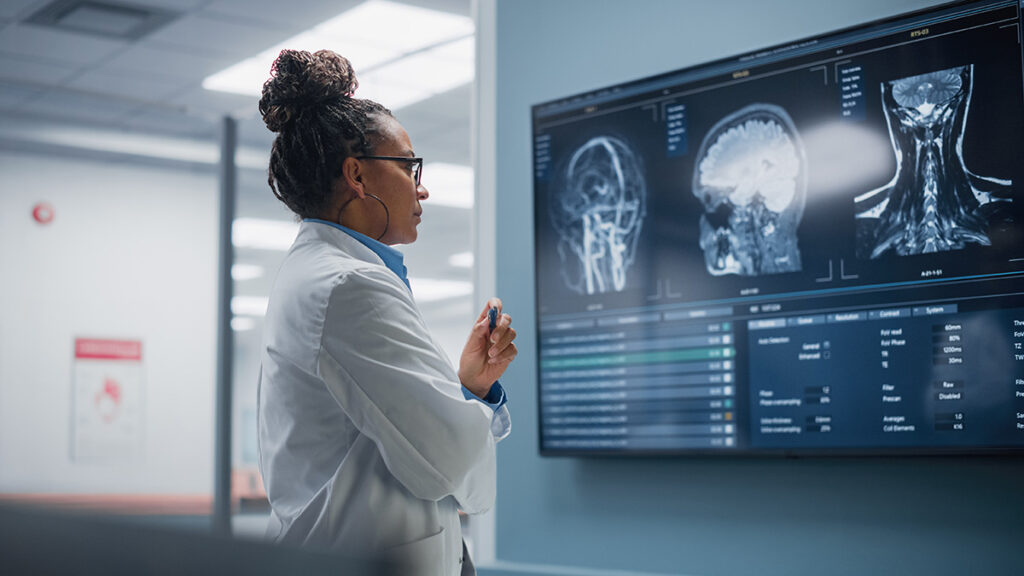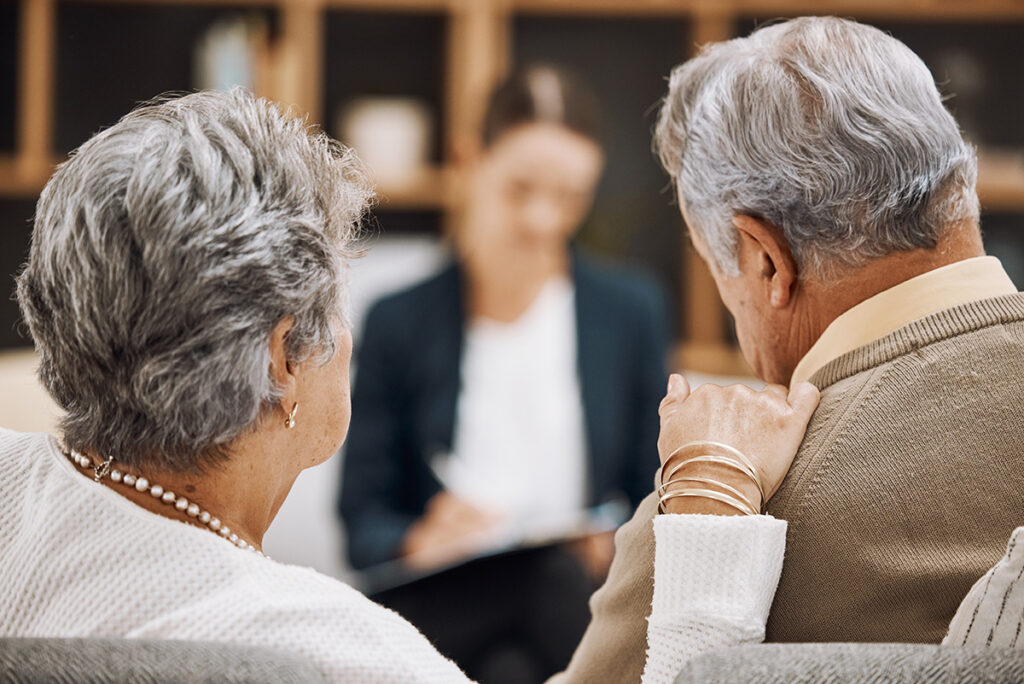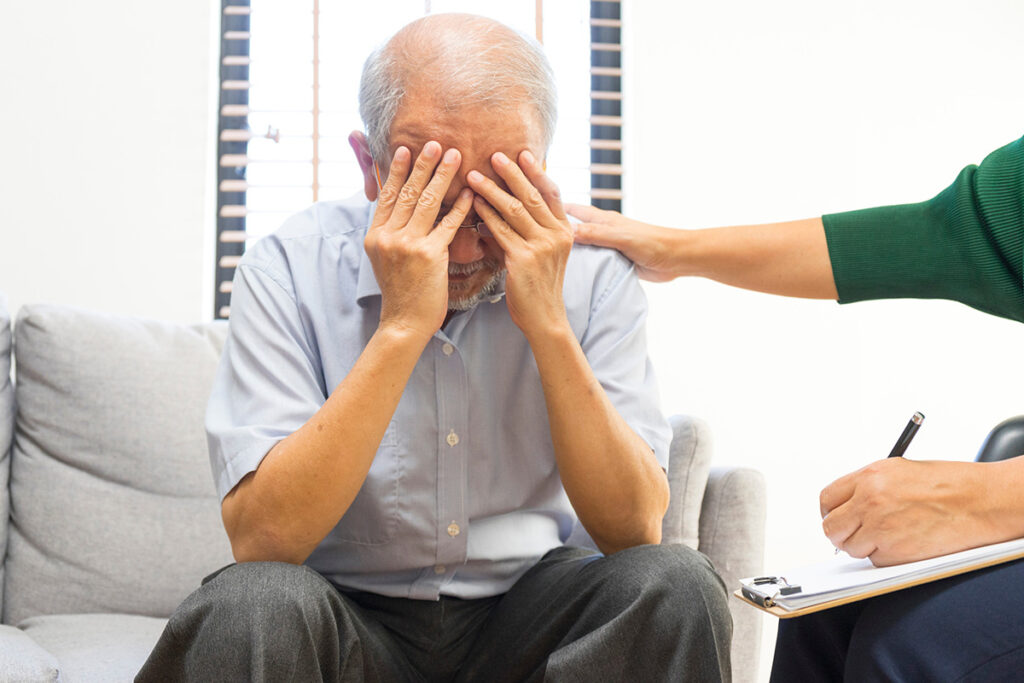What Doctor Should I See for A Dementia Diagnosis?

If you’re wondering if you or someone you love has dementia, the process of getting a proper diagnosis can feel overwhelming.
Who do you talk to?
Which doctor?
How will they determine if you have dementia or if it’s something else?
Most people haven’t been to the types of doctors who are equipped to diagnose dementia or Alzheimer’s, so you probably don’t even know where to begin. Your primary care physician, a psychiatrist, a neurologist?
We’re here to answer the most common questions people have when it comes to receiving a proper and accurate dementia or Alzheimer’s diagnosis.
What is the best doctor for dementia?
Symptoms of dementia and Alzheimer’s include memory loss, confusion, disorientation and change in mood or behavior. If you’ve noticed these symptoms in yourself or someone else, your first step is to set up an appointment with your primary care physician. A primary care physician cannot diagnose you with dementia, but he or she can help determine if your symptoms could be dementia-related or something else, such as a mood disorder like depression, or if a medication could be causing these behaviors.
Your primary care physician can then refer you to a specialist who can offer a proper diagnosis.

Specialists who can diagnose dementia and Alzheimer’s
The Alzheimer’s Association provides a list of specialists who can diagnose and treat Alzheimer’s. These specialists include:
1. Neurologists

Neurologists specialize in treating diseases in the brain, spinal cord and nervous system. Most are trained in Alzheimer’s disease and other types of dementia.
2. Neuropsychologist

A neuropsychologist is not a medical doctor but is trained to observe how a brain injury or illness is affecting a person cognitively, physically and socially. They specialize in test administration and diagnosing illnesses that could be affecting someone’s ability to function in daily life, such as dementia and Alzheimer’s.
3. Geriatricians

Geriatricians are primary care physicians who specialize in older adult care (age 65 and above). They are able to diagnose dementia as well as other existing medical issues.
4. Geriatric psychiatrist

Geriatric psychiatrists specialize in mental health and aging. They can help determine if you’re developing dementia or if your symptoms are related to another mental health issue.
Dementia diagnostic centers, Alzheimer’s disease centers and Alzheimer’s disease research centers have specialists on staff who can diagnose dementia and Alzheimer’s. To find out if there’s a center near you, contact your local Alzheimer’s Association chapter here.
Can a psychologist diagnose dementia?
A psychologist can assist with making a dementia diagnosis but because psychologists are not medical doctors and Alzheimer’s is a physiological disease, the psychologist will likely work with your medical doctor, whether that’s a neurologist or geriatrician, to make a proper diagnosis.
Psychologists can also support you or a loved one through a diagnosis, which can be emotionally overwhelming, and help provide care during the earlier stages of dementia. Having someone to process your emotions with during this time can be incredibly beneficial.
As the American Psychological Association points out, a psychologist can also work with the family of the person living with dementia, helping guide them on the best plan of care for their loved one. Even when someone living with dementia or Alzheimer’s is in a long-term care facility, psychologists can help with behavioral challenges that may arise from the disease or a side effect of a medication.
Having a psychologist on board as part of your broader care team can be greatly beneficial for those who are living with dementia and Alzheimer’s or are caring for someone who is.
How do you get diagnosed with dementia?
There is not one single test that can diagnose dementia or Alzheimer’s. Instead, several different types of mental and physical tests can be run that point doctors to a definitive diagnosis.
Methods for diagnosing Alzheimer’s and dementia
The Alzheimer’s Association provides a list of specialists who can diagnose and treat Alzheimer’s. These specialists include:
1. Cognitive testing
During these tests, a doctor will evaluate your thinking and reasoning ability, judgment and language skills among other skills and cognitive abilities.
2. Neurological evaluation
In addition to memory and language, doctors can use these evaluations to test your movement, balance and reflexes.
3. Psychiatric evaluation
A psychiatrist can run tests to determine if your symptoms are related to something other than dementia or Alzheimer’s, such as depression, anxiety or another emotional disorder.
4. Brain imaging
Brain imaging can be especially useful for an early Alzheimer’s diagnosis. There are a few different types of brain imaging, including MRIs and Pet Scans.
Structural imaging using an MRI can show if there has been any sign of neurodegeneration, such as shrinking in the hippocampus, a part of the brain crucial to retaining memory. An MRI can also show if something else is causing memory loss or cognitive function issues such as a tumor, stroke, head trauma or fluid in the brain.
Functional imaging performed by a PET scan or a functional MRI can reveal if there is reduced brain cell activity in certain areas of the brain that would indicate Alzheimer’s disease.
Molecular imaging tests, which can be performed by a PET scan, can detect the beta-amyloid and tau proteins in the brain (tangles of these proteins are hallmarks of Alzheimer’s disease) determining if someone has Alzheimer’s before the structure of the brain indicates presence of the disease.
4. Lab testing
Blood tests can determine if something other than dementia is causing memory loss such as low B-12 levels. Blood tests may also be helpful with early Alzheimer’s detection. A recent study found that a blood test called p-tau17 was successful at detecting the tau protein in blood, helping determine if someone had Alzheimer’s.
In addition, spinal fluid can be tested for pathologic amyloid plaques, tangles and neurodegeneration, a testing framework known as ATN, which can also aid in an early Alzheimer’s diagnosis.
If you’re worried you or a loved one is exhibiting signs of dementia or Alzheimer’s, don’t wait to seek a proper diagnosis. Set up an appointment with your primary care physician so she can rule out any conditions other than dementia that could be causing your symptoms and point you to the right specialist. The earlier you can receive a diagnosis, the earlier you can develop a plan of care and get on the right medications or treatment interventions, which will greatly improve your quality of life as you progress through the disease.





